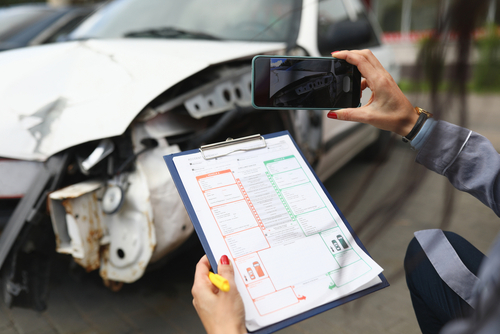Understanding Georgia’s Fault-Based System: What Drivers Need to Know
Understanding the intricacies of car insurance systems is crucial for any driver, especially in states like Georgia where fault-based systems are in place. If you’ve ever asked, “is Georgia a no-fault state?”—the answer is no. In these situations, having trusted professionals like our Cumming car accident lawyers can make all the difference. Our expertise in navigating the complexities of insurance claims and legal proceedings ensures that you are well-informed about your rights and responsibilities.
In contrast, no fault auto insurance is a mandatory coverage type in certain U.S. states that provides benefits like medical expenses and lost wages regardless of fault in an accident. This system offers advantages such as swift payment and avoidance of disputes, but it also has limited benefits, making it crucial to understand one’s policy thoroughly.
With our deep knowledge of Georgia’s fault laws, we can guide you through the process of managing insurance claims and understanding how fault is determined in the event of a car accident.
Introduction to No-Fault vs. Fault-Based Systems
No-fault insurance is a system where drivers receive compensation for their injuries from their own insurance companies, regardless of who caused the accident. This approach simplifies the claims process. It eliminates the need to prove fault, which can speed up compensation for medical expenses and lost wages. However, no-fault systems may limit the ability to sue for pain and suffering. Understanding no fault car insurance is essential as it affects insurance coverage requirements and claims processes, particularly in states with specific insurance coverage mandates.
In contrast, fault-based systems hold the at-fault driver responsible for damages. In these states, the injured party must prove the other driver was negligent. This process can involve investigating the accident, gathering evidence, and possibly going to court. Drivers can pursue compensation for medical bills, lost income, and pain and suffering.
Understanding these differences is vital for drivers in Georgia. Since Georgia follows a fault-based system, knowing how liability and insurance claims work is crucial for effective navigation after an accident.
Is Georgia a No-Fault State?
Georgia is not a no-fault state. Instead, it operates under a fault-based system for car insurance. This means that the driver responsible for causing an accident is liable for the damages. In Georgia, drivers must prove negligence to recover compensation for their injuries and property damage. In contrast, no fault insurance states require drivers to file claims with their own insurance companies for medical expenses and lost income, regardless of who is at fault in an accident.
Comparison with No-Fault States
In contrast, no-fault states, such as Florida, allow drivers to collect compensation from their own insurance companies, regardless of who caused the accident. This system simplifies the claims process but limits the ability to sue the at-fault driver for damages. In no-fault states, drivers must file no fault claims with their own insurance, which covers certain types of damages but can impact their premiums and record. In Georgia, if you are injured in a car accident, you can pursue a claim against the at-fault driver’s insurance for medical expenses, lost wages, and pain and suffering.
Understanding this difference is crucial. It affects how insurance claims are filed and the potential for recovering damages after an accident. If you are involved in a car accident in Georgia, knowing that it is a fault state will help you navigate the claims process effectively and ensure you receive the compensation you deserve.

Key Elements of Georgia’s Fault-Based System
In Georgia, the car insurance system operates on a fault-based model. Understanding the key elements of this system is vital for all drivers. Here’s a closer look at how liability works, the modified comparative negligence rule, and the mandatory minimum insurance requirements.
In contrast, the no fault insurance system, used in some other states, requires drivers’ insurance policies to cover their own expenses regardless of fault in accidents, simplifying the claim process and avoiding disputes over liability.
How Liability is Determined Through Negligence
In Georgia, liability for a car accident is determined by negligence. The driver who is found to be at fault for the accident is responsible for paying damages to the other party. This determination is based on the actions leading up to the accident. If a driver breaks traffic laws or acts recklessly, they may be considered negligent. Evidence such as police reports, witness statements, and accident scene investigations play a crucial role in establishing fault.
A serious injury can significantly impact the determination of liability and the potential for compensation, as different states have their own definitions of what constitutes a serious injury, which is crucial for victims seeking compensation beyond standard insurance coverage.
Understanding the Modified Comparative Negligence Rule
Georgia follows the modified comparative negligence rule. This means that if you are involved in an accident, your compensation may be reduced based on your level of fault. If you are found to be 50% or more at fault, you cannot recover any damages. For example, if you suffer $100,000 in damages but are found to be 30% at fault, your compensation would be reduced to $70,000. This rule encourages drivers to operate safely and responsibly.
Overview of Georgia’s Mandatory Minimum Insurance Requirements
Georgia law requires drivers to carry a minimum amount of liability insurance. The minimum coverage includes:
- $25,000 for bodily injury per person
- $50,000 for bodily injury per accident
- $25,000 for property damage
These minimums ensure that drivers can cover basic damages if they are at fault in an accident. However, it is often advisable to consider higher coverage limits to protect against significant accidents and potential lawsuits. Understanding these requirements helps drivers maintain adequate protection and avoid penalties.
How Insurance Claims Work in Georgia
In Georgia, the process of filing an insurance claim after a car accident involves several key steps. Understanding these steps can help you navigate your claim efficiently and effectively.
Filing a no fault insurance claim, on the other hand, involves different procedures and requirements, as it is used in no-fault states to ensure compensation without determining fault.
Process of Filing a Claim Against the At-Fault Driver’s Insurance
After a car accident, the first step is to gather information. You should collect details about the accident, including the police report, witness statements, and photographs of the scene. Once you have this information, you can file a claim with the at-fault driver’s insurer, who plays a crucial role in the claims process.
When filing the claim, you will need to provide:
- Your personal information
- Details about the accident
- Evidence supporting your claim, such as medical bills and repair estimates
The insurance company will review the claim and may contact you for additional information.
Role of Investigations by Insurance Companies and Attorneys
Insurance companies will conduct their own investigation to determine fault. They will examine the evidence and may speak with witnesses. If you have an attorney, they can assist in presenting your case to the insurance company. An attorney can help ensure that your rights are protected and that you receive fair compensation for your injuries and damages.
Additional Coverage Options Available to Georgia Drivers
In Georgia, drivers have options for additional coverage beyond the state’s minimum requirements. Consider these options:
- Uninsured/Underinsured Motorist Coverage: This protects you if you are in an accident with a driver who has insufficient insurance.
- Personal Injury Protection (PIP): While Georgia does not require PIP, it can cover medical expenses and lost wages regardless of fault.
- Comprehensive and Collision Coverage: These cover damages to your vehicle from accidents or other incidents.
Understanding these coverage options can help you make informed decisions about your insurance policy and protect your financial interests in the event of an accident.
Comparisons Between Fault and No-Fault States
Understanding the differences between fault and no-fault states is vital for drivers. Each system has its own advantages and limitations that can impact your insurance claims and overall experience after an accident. In a no-fault state, a no fault claim allows you to seek compensation for medical costs and lost income directly from your own insurance, regardless of who caused the accident, unlike in a fault-based state like Georgia where the at-fault driver’s insurance is responsible for covering these expenses.
Advantages of Fault-Based Systems for Drivers
In fault-based systems like Georgia, drivers have the right to seek compensation from the at-fault party. This can include medical expenses, lost wages, and pain and suffering. Key advantages include:
- Higher Compensation Potential: Victims can recover full damages from the responsible party’s insurance, which may cover all expenses related to the accident.
- Accountability: The at-fault driver is held responsible for their actions. This can encourage safer driving behavior among all motorists.
- Freedom of Choice: Drivers can choose their own insurance policies and coverage levels, allowing for more tailored protection.
Limitations and Restrictions of No-Fault Insurance Systems
No-fault insurance systems, such as those in Florida and Michigan, limit the ability to sue the other driver. Instead, drivers must rely on their own insurance for compensation. Some limitations include:
- Lower Compensation Limits: Victims may only recover a set amount for medical expenses and lost wages, regardless of the severity of the accident.
- Less Accountability: Drivers may not feel the same pressure to drive safely, knowing they are not financially responsible for others’ damages.
- Complex Claims Process: Navigating claims can be more complicated, as each driver must deal with their own insurance company, potentially leading to disputes over coverage and compensation.
Car accident lawsuits are also limited in no-fault insurance systems, restricting the ability to pursue third-party claims unless certain thresholds are met.
In summary, while fault-based systems like Georgia’s offer more opportunities for compensation and accountability, no-fault systems provide quicker access to benefits but with restrictions on legal recourse. Understanding these differences can help drivers make informed decisions about their insurance and legal rights.
Situations Involving Disputed or Shared Fault
In Georgia, car accidents often involve disputes about who is at fault. When two or more parties share responsibility for an accident, this can complicate the claims process. Understanding how to handle these situations is crucial for drivers. Additionally, if the accident results in serious injuries, it can further complicate the determination of fault and the claims process, as victims may seek compensation beyond no-fault benefits.
Handling Claims with Shared Fault Between Parties
When an accident involves shared fault, both drivers may be partially responsible for the incident. In Georgia, the modified comparative negligence rule applies. This rule means that if you are found to be less than 50% at fault, you can still recover damages. However, your compensation will be reduced by your percentage of fault.
For example, if you are in an accident and found to be 30% at fault, and the total damages amount to $100,000, you can recover $70,000. This is because your share of the fault reduces your compensation by 30%. It is essential to gather evidence, such as police reports and witness statements, to support your claim.
Impact of Shared Negligence on Settlement Amounts
Shared negligence can significantly affect settlement amounts. Insurance companies will evaluate the degree of fault assigned to each driver. If you are deemed to have a higher percentage of fault, your potential recovery may decrease.
Negotiating with the insurance company can be challenging. They may attempt to assign more blame to you to minimize their payout. Having an experienced attorney can help ensure that your interests are protected. They can advocate on your behalf and work to secure a fair settlement based on the facts of the case.
In summary, understanding how shared fault impacts claims is critical for drivers in Georgia. By knowing your rights and the rules of comparative negligence, you can navigate these situations more effectively.

Legal and Financial Considerations
Understanding the legal and financial aspects of car accidents in Georgia is crucial for drivers. Knowing these elements can help you navigate the aftermath of an accident effectively.
Statute of Limitations for Filing Claims in Georgia
In Georgia, the statute of limitations for filing a personal injury claim after a car accident is two years. This means you have two years from the date of the accident to file your claim. If you miss this deadline, you may lose your right to seek compensation for your injuries and damages. It is essential to act quickly and consult with an attorney to ensure your claim is filed on time.
Steps for Recovering Damages When Claims Exceed Insurance Limits
When damages exceed the at-fault driver’s insurance limits, you may need to explore other options for recovery. Here are some steps to consider:
- File a Claim Against the At-Fault Driver: If the insurance payout is insufficient, you can file a claim directly against the at-fault driver for the remaining balance.
- Pursue Underinsured Motorist Coverage: If you have underinsured motorist coverage, it may help cover the difference between your damages and the at-fault driver’s insurance limits.
- Consider Legal Action: If necessary, you may need to file a lawsuit against the at-fault driver. This action can help you recover the full amount of your damages, including medical expenses, lost wages, and pain and suffering.
Understanding these legal and financial considerations can empower you to make informed decisions after a car accident. Consulting with a knowledgeable attorney can provide additional guidance tailored to your specific situation.
Why It’s Important to Understand Georgia’s Fault Laws
Understanding Georgia’s fault laws is essential for all drivers. Knowledge of how these laws work can significantly impact your rights and potential compensation after an accident.
Importance of Knowing Your Rights Under a Fault-Based System
In Georgia, drivers must understand their rights under the fault-based system. This knowledge helps you navigate the complexities of insurance claims after a car accident. If you are involved in an accident, knowing who is at fault can determine who pays for damages and medical expenses. If you are not at fault, you have the right to seek compensation from the at-fault driver’s insurance company. Understanding this process can help you avoid costly mistakes and ensure you receive the compensation you deserve.
Benefits of Consulting with an Attorney for Navigating Claims
Consulting with an attorney can provide significant advantages when dealing with car accident claims in Georgia. An experienced attorney can help you understand the nuances of the modified comparative negligence rule. They can guide you through the process of filing a claim against the at-fault driver’s insurance. Additionally, an attorney can assist in gathering evidence, negotiating settlements, and representing you in court if necessary. Their expertise can be invaluable in maximizing your recovery and ensuring that you are treated fairly throughout the claims process.
In summary, being informed about Georgia’s fault laws and seeking legal guidance can protect your rights and enhance your chances of a favorable outcome after a car accident.
Conclusion
Georgia is a fault-based state, meaning that the driver responsible for an accident is liable for damages. This system can significantly impact how insurance claims are handled and how compensation is determined. Unlike no-fault states, where each driver relies on their own insurance regardless of fault, Georgia requires proving negligence to claim damages from the at-fault driver.
Understanding Georgia’s fault laws is essential for every driver. Knowing your rights and responsibilities can help you navigate the complexities of insurance claims. It is advisable to review your auto insurance policy to ensure you have adequate coverage. Consulting with a qualified attorney—such as the experienced team at The Law Offices of Humberto Izquierdo, Jr., PC—can provide valuable insights into your specific situation and help you make informed decisions regarding your claim.
In summary, being aware of Georgia’s fault-based system and its implications can empower you as a driver. Proper knowledge can lead to better outcomes in the event of an accident, ensuring you are prepared for any challenges that may arise. Contact us today at The Law Offices of Humberto Izquierdo, Jr., PC to schedule a consultation and get the legal guidance you deserve (770) 888-8901





